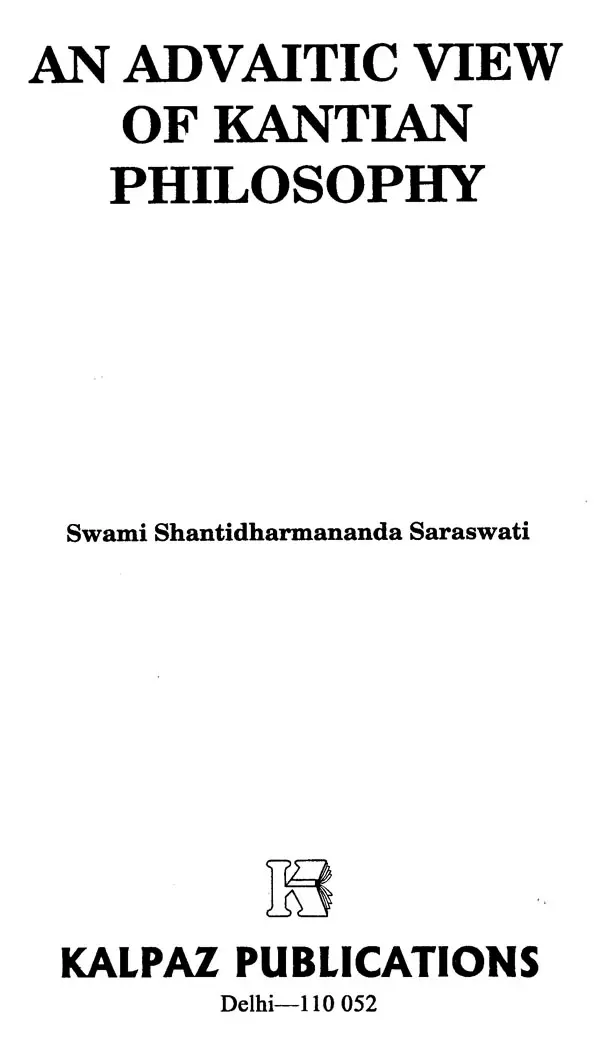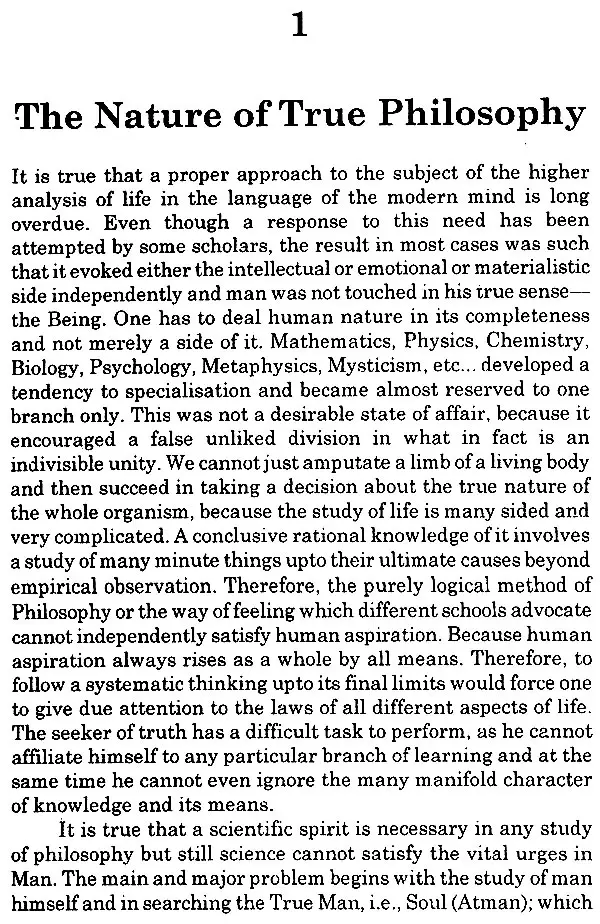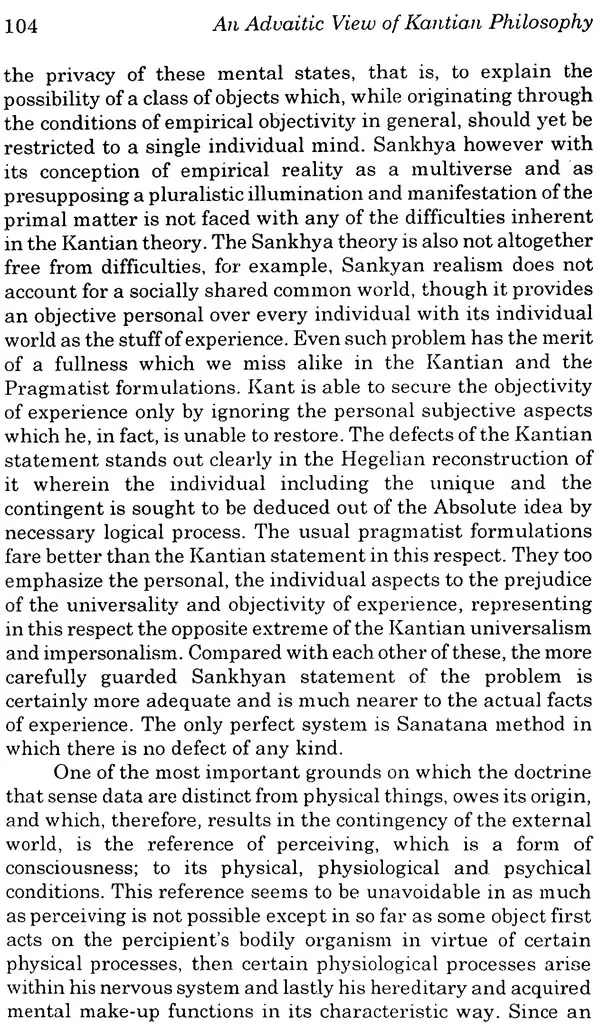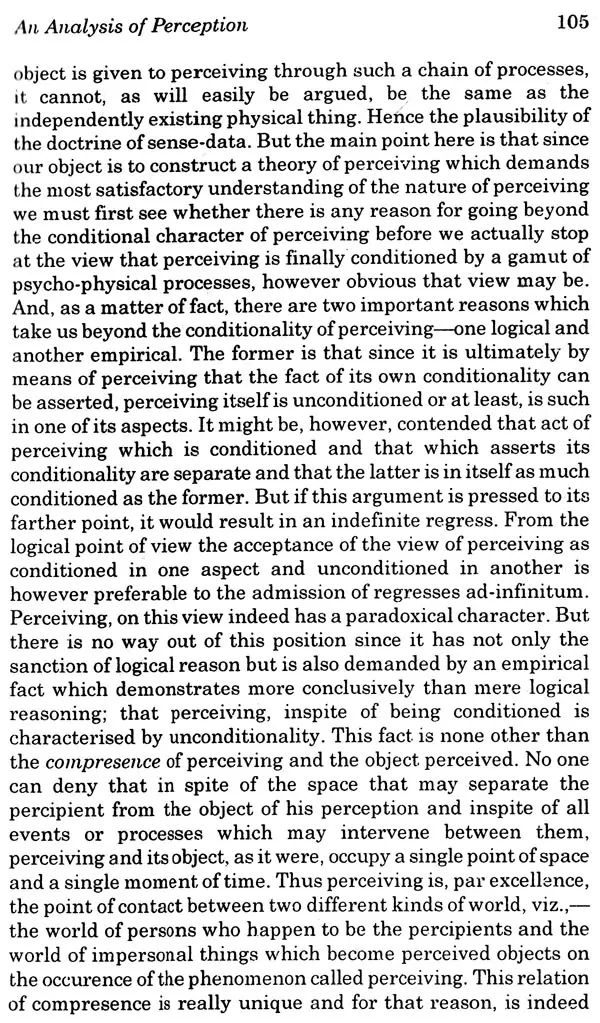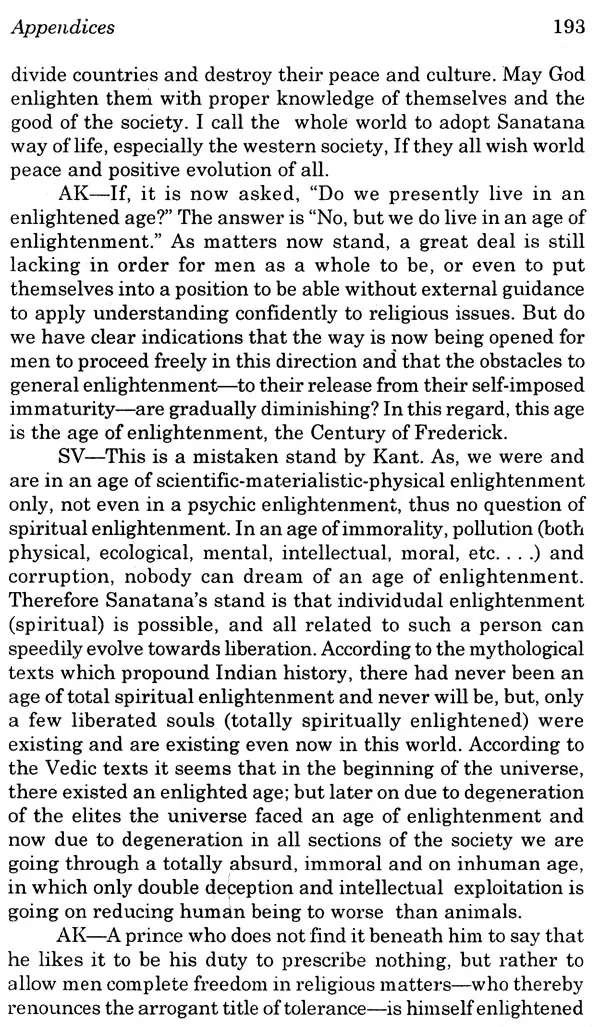About the Book The book presents a comparative study as well as critique and inconsistencies of the modem science and the western philosophies in a broad perspective of the Sanatana (Vedanta) method. It tries to draw attention of spiritual seekers towards the inconsistencies existing in modern science and western philosophies. It also tries to show how and why they are not competent paths of liberation. It examines them both in their theory and practical aspects and tries to correct especially the modernest western critical Philosopher Immanuel Kant. It is an absolute good start to begin a comparative philosophical dialogue between the East and West. This will surely prove to be a foundation stone for future debate on the true philosophy presented by the sages in the Vedas (time unknown). It has been written in an easily-to-understand language, the work abounds in proper and perfect reasoning and implications building a broad base and comprehensive treatment of the subject.
Even though there are many contradictory philosophies established on the basis of the same Vedas, but still the absolute non-dualism: established by Adi Shankaracharya is established to be the perfect and the only way to liberation, the rest are only helpful for seekers at different stages on the path of evolution.
This book thus examines philosophy in general and also in particular touching all aspects of philosophy, so that it will prove to be extremely relevant to all those simply interested in study of philosophy, whether they are beginners, scholars, researchers or spiritual aspirants.
About the Author Swami Shantidharmananda Saraswati, is a scholar-saint who has been in the quest for spiritual knowledge for years. He received spiritual guidance, wisdom and initiation into Sanyas from Swami Satyananda Saraswati of Bihar School of Yoga, Munger, Bihar, India.
He quenched his thirst of spiritual knowledge and wisdom from many other eminent spiritual masters at the historical pilgrimage centres - Rishikesh, Benares (Varanasi) and Omkareshwar. He has specialized in Yoga, Astrology, Vedanta and other related subjects under the able guidance of his Masters. He currently resides and teaches in his own hermitage.
Preface Philosophy is a very vast, deep, tough and difficult subject as it is related to not only mans ethical, moral, social and cultural life but it also deals all aspects of the human life unto his Liberation. In this quest genius men all over the World have been working hard since the creation of the Universe. There is a very long consistent history in the East, particularly in India and in the West it is of a very short history. The basic difference in the East and West is that in the East the Sages were not under any sort of pressure whereas in the West almost all philosophers were not only under the direct influence of the socio-political situations, but also under the pressure of church and other religious institutions of their times. Thus it has been said that there is a radical difference between the Western and the Eastern methods of approach the pursuit of Philosophy.
Introduction A Synopsis of Kantian Philosophy In my view what Kantian Philosophy says as I have understood can be put briefly as follows: Whatever Kant has said is within the realms of reason and perception, which have their own limitations. Thus the whole of Kantian Philosophy is limited to the materialistic world. Because in his philosophy, sometimes called Critical Philosophy which is contained in his Critique of Pure Reason (1781), he has examined the basic principles of human knowledge and created a general epistemology. Like earlier philosophers, Kant differentiated modes of thinking into analytic and synthetic propositions. An analytic proposition is one in which the predicate is contained in the subject, as in the statement-"Black Houses are Houses." The truth of this type of proposition is evident, because to state the opposite would be to make the proposition self-contradictory.
Book's Contents and Sample Pages
